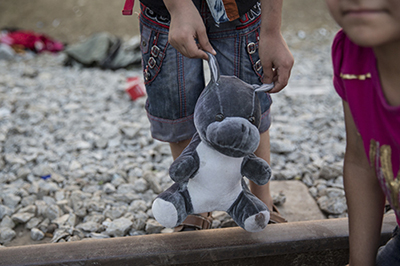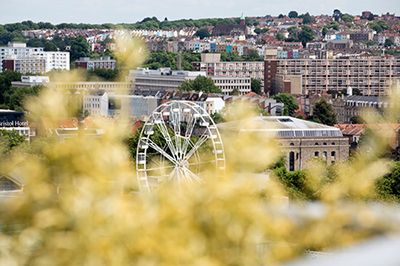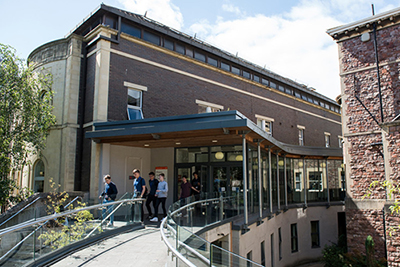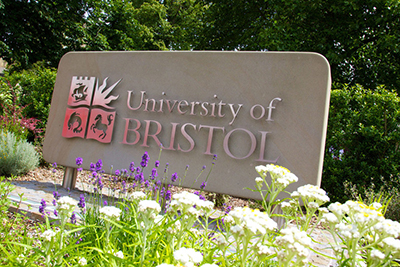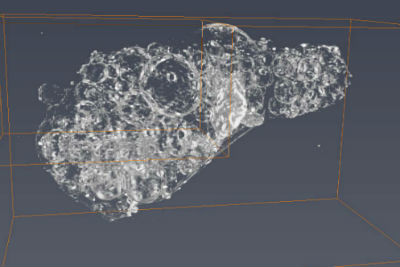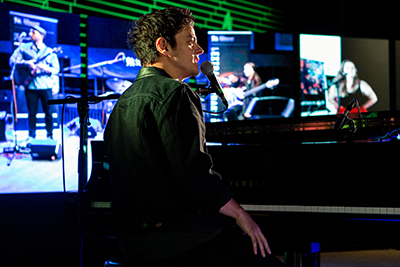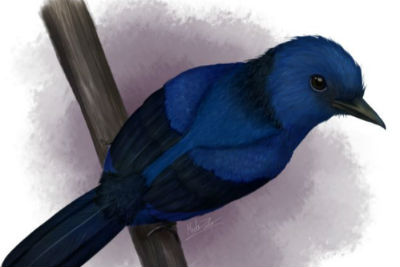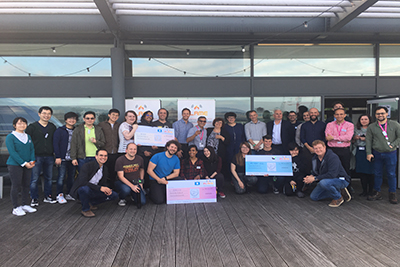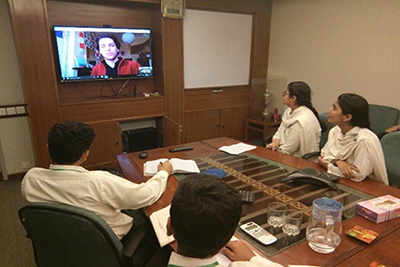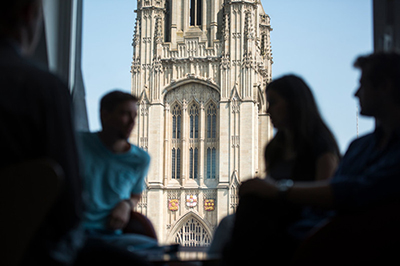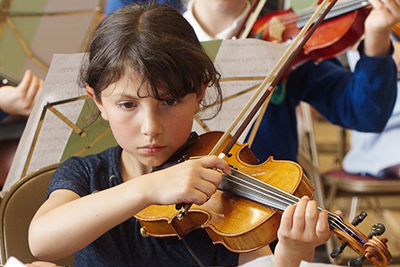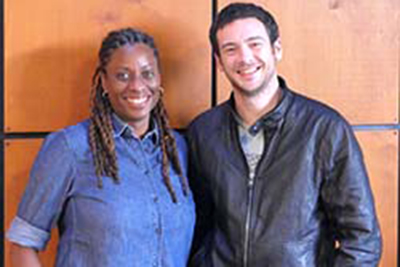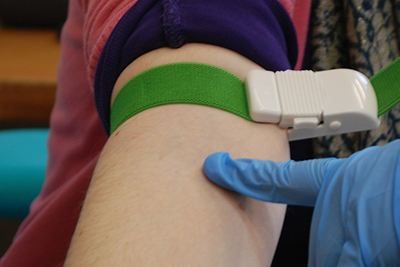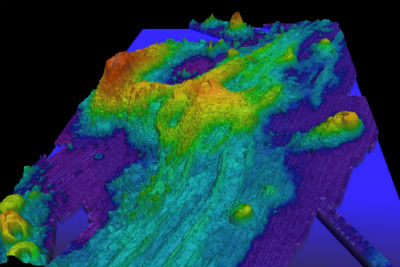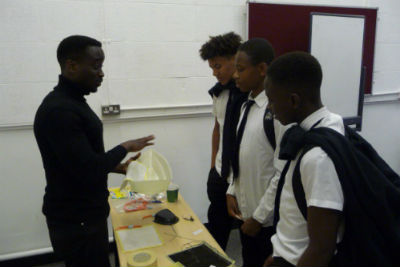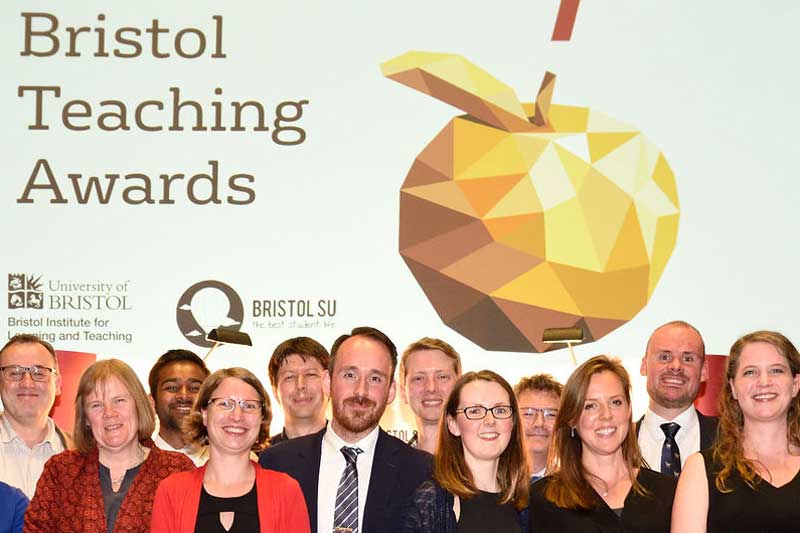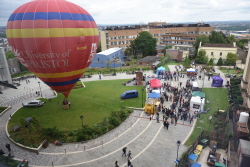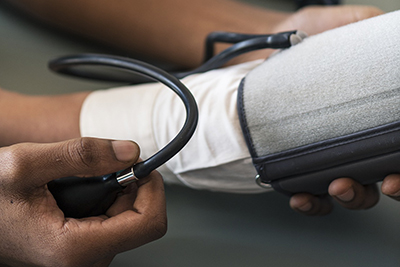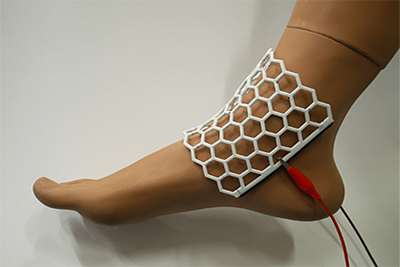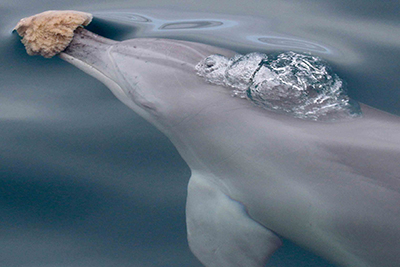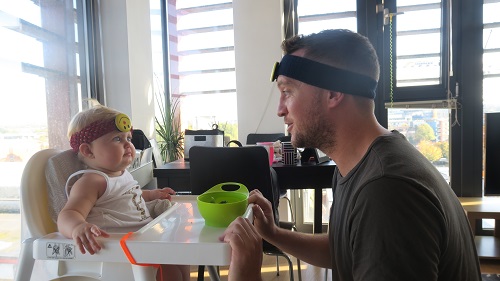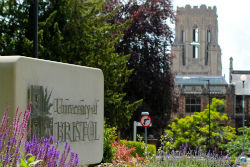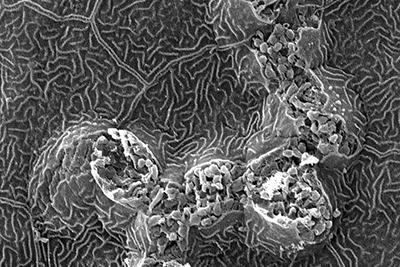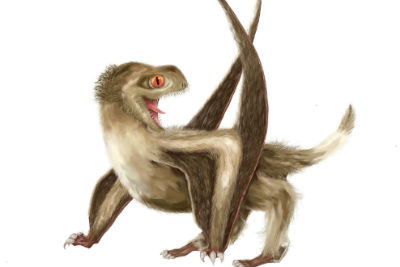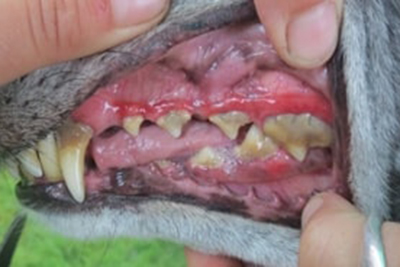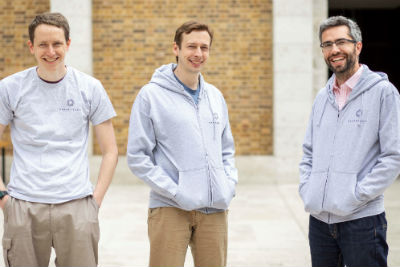News in June
- Lack of data on missing migrant children leads to gaps in protection 28 June 2019 A new report highlights the need for better data on migrant deaths and disappearances, particularly those of missing migrant children.
- UK-first as £960,000 project explores integration in Bristol 27 June 2019 A unique new project led by the University of Bristol has received a £960,000 boost to improve integration across Bristol by exploring how its citizens and communities share spaces and move around the city.
- New public services research centre gets green light 27 June 2019 A new research centre, focusing on public services and welfare reform, will launch in October 2019 thanks to being awarded Legacy Centre Status by the Economic and Social Research Council (ESRC).
- Subjects at the University of Bristol are world-class, new league table confirms 26 June 2019 Research and teaching in key areas at the University of Bristol is among the best in the world, according to a new international league table.
- New research identifies Fukushima reactor material in environment 26 June 2019 Through the analysis of specific fallout particles in the environment, a joint UK-Japan team of scientists has uncovered new insights into the sequence of events that led to the Fukushima nuclear accident in March 2011.
- Jamie Cullum leads world's first 5G music lesson 26 June 2019 Critically acclaimed musician and songwriter Jamie Cullum, led the world's first 5G music lesson from his piano at the two thousand year-old Roman Amphitheatre in London yesterday [Tuesday 25 June], playing live with amateur musicians in Bristol and Birmingham using 5G technology from the Smart Internet Lab at the University of Bristol, EE, King's College London and Digital Catapult.
- Blue colour tones in fossilised prehistoric feathers 26 June 2019 Examining fossilised pigments, scientists from the University of Bristol have uncovered new insights into blue colour tones in prehistoric birds.
- New research shows how melting ice is affecting supplies of nutrients to the sea 25 June 2019 The findings of a research expedition to coastal Greenland which examined, for the first time, how melting ice is affecting supplies of nutrients to the oceans has been published in the journal Progress in Oceanography.
- Clouds dominate uncertainties in predicting future Greenland melt 24 June 2019 New research led by climate scientists from the University of Bristol suggests that the representation of clouds in climate models is as, or more, important than the amount of greenhouse gas emissions when it comes to projecting future Greenland ice sheet melt.
- Citizen services, gaming and immersive media showcased on a new 5G platform 20 June 2019 A world-leading consortium of industry pioneers has been showcasing the latest innovations in 5G networking and technologies across a four-day event at the University of Bristol’s Smart Internet Lab.
- How in times of trouble animals also stand together 20 June 2019 Faced with potential violence from rival factions, dwarf mongoose groupmates pull together and behave more co-operatively, according to a new study by University of Bristol researchers published today [Thursday 20 June].
- Physics Programme offers International Mentoring in Pakistan 20 June 2019 Following the success of the University’s School of Physics’s International Mentoring scheme the programme has been continued to its second year of knowledge sharing with students in Pakistan.
- Bristol ranked in the world's top 50, new league table reveals 19 June 2019 The University of Bristol has risen two places to 49th in the QS World University Rankings 2020 released today [19 June].
- Storytelling through music 18 June 2019 There will be classical music floating through the University of Bristol Student’s Union (Bristol SU) today [Tuesday 18 June] when 220 students from 11 local primary schools come together for an orchestra workshop.
- Experience immersive VR documentaries 18 June 2019 A Virtual Realities project will be showcasing three non-fiction works and hosting a discussion panel next Tuesday [25 June] from 5 to 8 pm at the Watershed, Bristol.
- GPs should not use inflammatory marker tests to rule out serious conditions 18 June 2019 Blood tests that detect inflammation, known as inflammatory marker tests, are not sensitive enough to rule out serious underlying conditions and GPs should not use them for this purpose, according to researchers from the University of Bristol's Centre for Academic Primary Care, University of Exeter and the National Institute for Health Research Collaboration for Leadership in Applied Health Research and Care West (NIHR CLAHRC West).
- Managing the risk of aggressive dog behaviour 17 June 2019 Aggressive behaviour in pet dogs is a serious problem for dog owners across the world, with bite injuries representing a serious risk to both people and other dogs. New research by the University of Bristol has explored the factors that influence how owners manage aggressive behaviour in their dogs. The study found that clinical animal behaviourists should focus on helping dog owners to feel confident in the effectiveness of the behaviour modification techniques that they recommend and, in their ability, to actually use them successfully.
- How tides can trigger earthquakes 14 June 2019 An international team of scientists – including a volcanologist from the University of Bristol – have uncovered why underwater earthquakes are linked with the tides.
- Bristol engineering school hosts mentorship event for local black students 14 June 2019 Earlier this week, the University of Bristol’s School of Civil, Aerospace and Mechanical Engineering (CAME) held a mentorship event for black students from City Academy in Bristol.
- 2019 Bristol Teaching Awards winners announced 13 June 2019 Nominees, winners and supporters of the 2019 Bristol Teaching Awards gathered in the Great Hall of the Wills Memorial Building yesterday (Wednesday 12 June) to celebrate colleagues' outstanding contributions to teaching, student support and enhancement of the student learning experience.
- 30,000 people to visit Bristol for University open days 13 June 2019 Over 30,000 visitors will be attending the University of Bristol’s latest undergraduate open days on Friday and Saturday [14 and 15 June].
- Chronic diseases monitored in primary care could lead to unnecessary testing 13 June 2019 Guidelines used by GPs to monitor chronic diseases are based on expert opinion rather than evidence, according to a review of the guidelines by National Institute for Health Research (NIHR) researchers at the University of Bristol. The review, published today [Thursday 13 June] in the British Medical Journal, looked at guidelines for chronic kidney disease, high blood pressure and type 2 diabetes, which are monitored through a range of tests in GP surgeries.
- People with mobility issues set to benefit from wearable devices 13 June 2019 The lives of thousands of people with mobility issues could be transformed thanks to ground-breaking research by scientists at the University of Bristol.
- Dolphins form friendships through shared interests just like us, study finds 12 June 2019 When it comes to making friends, it appears dolphins are just like us and form close friendships with other dolphins that have a common interest. The findings, published in the Proceedings of the Royal Society B by an international team of researchers from the Universities of Bristol, Zurich and Western Australia, provides further insight into the social habits of these remarkable animals.
- Male victims of domestic abuse face significant barriers to getting help 12 June 2019 Men who experience domestic violence and abuse face significant barriers to getting help and access to specialist support services, according to a study by researchers at the University of Bristol's Centre for Academic Primary Care and Centre for Gender and Violence Research published in BMJ Open today [Wednesday 12 June].
- Being a dad is under the spotlight at the University of Bristol 11 June 2019 Researchers at the University of Bristol are about to delve deeper into the relationship between dads and their new baby.
- Guardian University Guide 2020 10 June 2019 The University of Bristol has been ranked 23rd in The Guardian’s University Guide for 2020.
- Award-winning neuroscientist, flood-risk expert and Engine Shed director receive Queen’s Birthday Honours 7 June 2019 University of Bristol professors Graham Collingridge and Paul Bates, and Engine Shed Director Nick Sturge, have all received awards in this year’s Queen’s Birthday Honours which recognises the achievements of extraordinary people across the UK.
- Bristol celebrates awards scoop at science awards 7 June 2019 Bristol celebrated an awards scoop at the Great West Awards 2019, which honoured the achievements of some of the region's most innovative science and engineering spin-outs and start ups.
- More support needed to increase HIV testing in GP practices 7 June 2019 One-off training sessions for GPs are not enough to increase rates of HIV testing in general practice and greater support is needed, according to researchers from the University of Bristol’s Centre for Academic Primary Care and National Institute for Health Research (NIHR) Health Protection Research Unit in Evaluation of Interventions published in BMC Family Practice.
- Adjusting carbon emissions to the Paris climate commitments would prevent thousands of heat-related deaths 5 June 2019 Thousands of annual heat-related deaths could be potentially avoided in major US cities if global temperatures are limited to the Paris Climate Goals compared with current climate commitments, a new study led by the University of Bristol has found.
- Despite increase in rates of non-suicidal self-harm, few people receive medical or psychological support 5 June 2019 A new study of non-suicidal self-harm in England, published in The Lancet Psychiatry journal, suggests that rates grew from around 2 per cent to 6 per cent of the population between 2000 and 2014. At the same time, the study noted no evidence of an increase in treatment contact for this group.
- The moth making waves in sound technology 5 June 2019 A new ultra-thin sound proofing material inspired by the tiny sound absorbent scales found on the wings of a giant species of moth is being developed thanks to a £1.6 million EPSRC grant. The University of Bristol-led project will see the development of a new prototype material with exciting functional properties –broadband multidirectional absorption at a thickness only fractions of the sound wavelength- to help control noise pollution in cities, offices and homes.
- Zebrafish capture a 'window' on the cancer process 4 June 2019 Cancer-related inflammation impacts significantly on cancer development and progression. New research has observed in zebrafish, for the first time, that inflammatory cells use weak spots or micro-perforations in the extracellular matrix barrier layer to access skin cancer cells.
- Feathers came first, then birds 3 June 2019 New research, led by the University of Bristol, suggests that feathers arose 100 million years before birds - changing how we look at dinosaurs, birds, and pterosaurs, the flying reptiles.
- Bad teeth revealed as biggest problem for pet greyhounds 3 June 2019 Dental disease is the most common health issue facing pet greyhounds, according to the largest ever study of greyhounds treated in first opinion veterinary clinics. The research, led by the Royal Veterinary College's (RVC) VetCompassTM programme in collaboration with the University of Bristol Vet School, reveals that 39 per cent of greyhounds suffer from dental problems, which is a far higher percentage than for any other dog breed.
- Quantum computing company – co-founded by Bristol scientist – benefits from £750k investment 3 June 2019 A pioneering quantum computing company co-founded by academics from University College London (UCL) and the University of Bristol has received £750,000 investment from the UCL Technology Fund, along with co-investors Parkwalk Advisors and the London Co-investment Fund.
